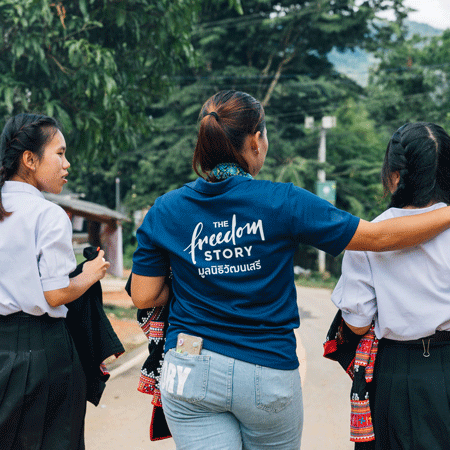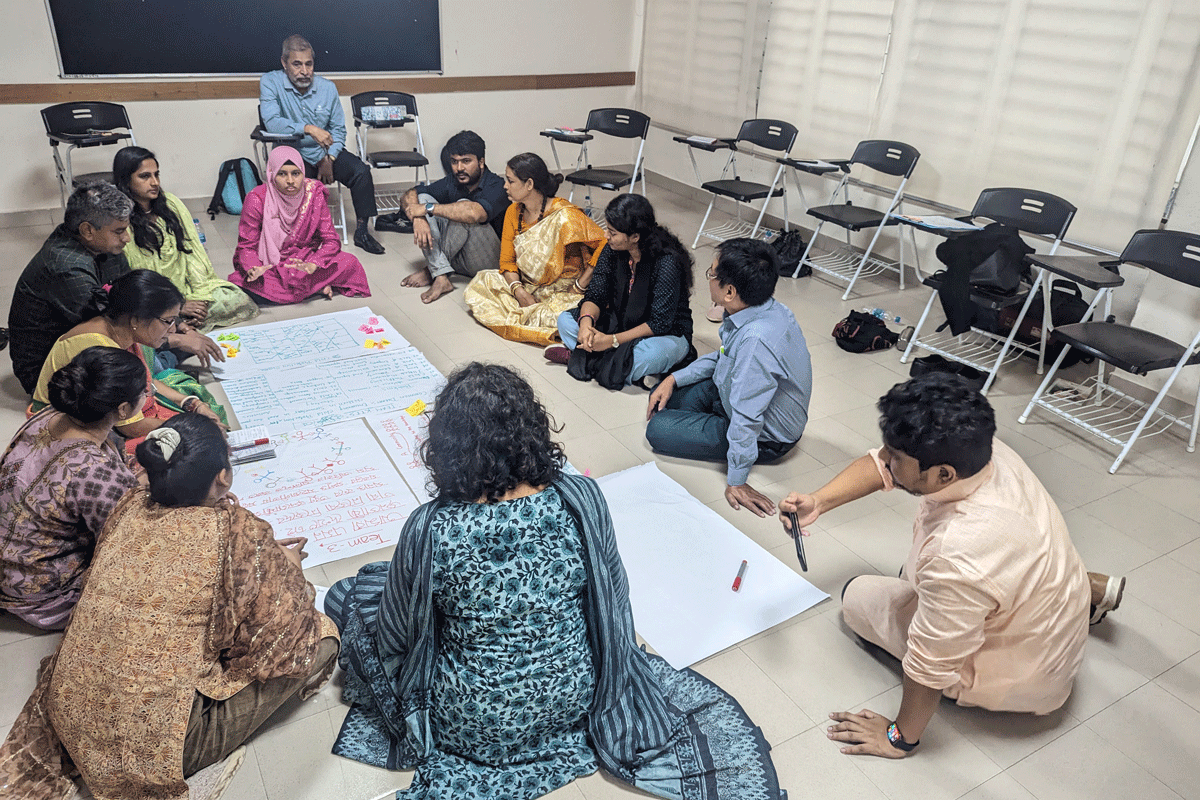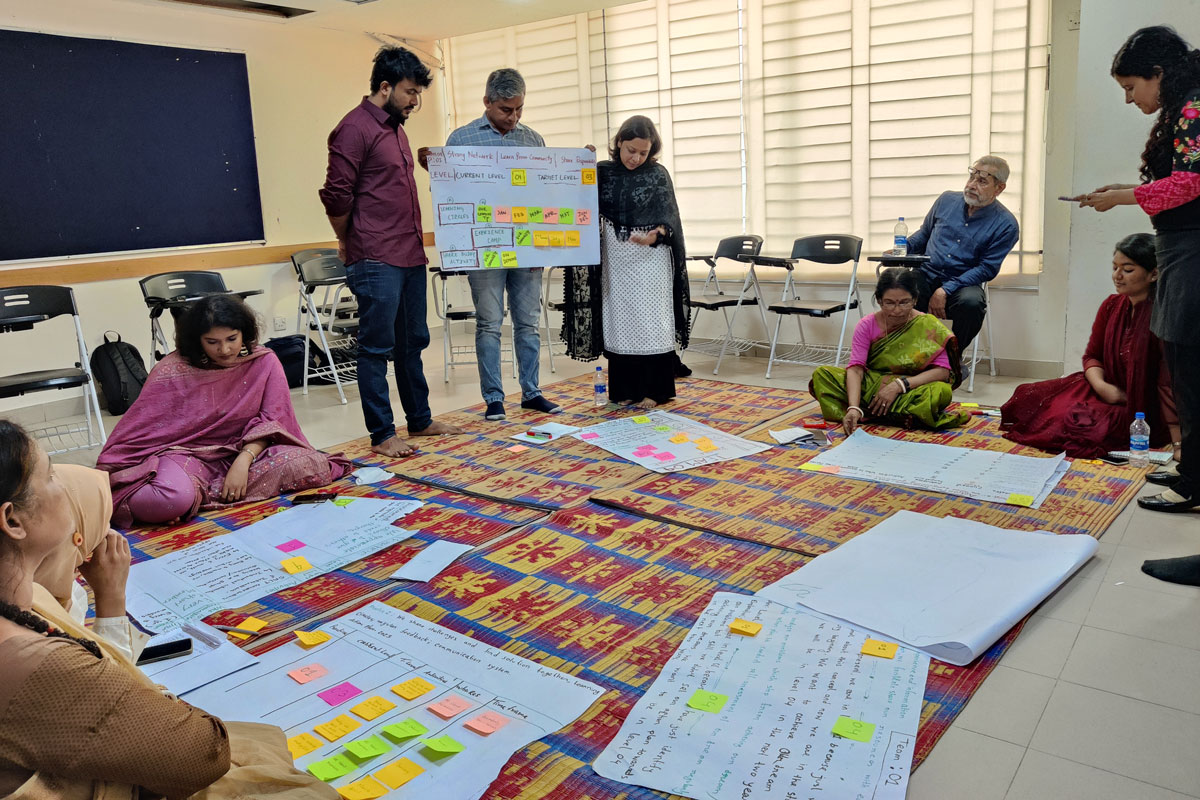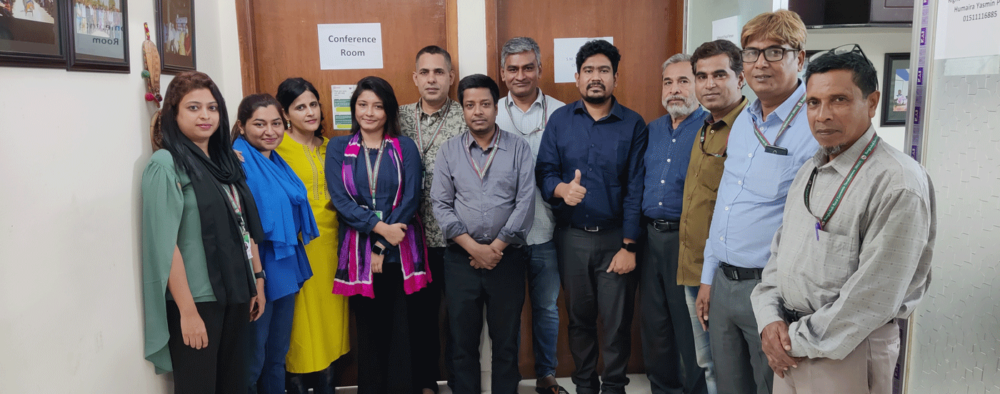
Segurança e bem-estar
Segurança e bem-estar
Nota do editor: esta postagem do blog foi escrita por Kulsoom Khan, Codiretor Regional Sênior para a Ásia, e Rituu B Nanda, Consultor do Programa Participativo para o Sul da Ásia.
Fundo Global para a Infância Iniciativa de Abordagem das Causas Raiz (ARC) surgiu de uma iniciativa da GFC de 2019-2023 abordando o tráfico e o trabalho infantil na Índia. Ao longo da iniciativa, ficou cada vez mais claro que focar nas questões visíveis (como crianças fora da escola) não resolve as causas raiz (por que as crianças estão fora da escola) ou leva a uma mudança duradoura. As comunidades, com conhecimento íntimo das causas raiz, estão em melhor posição para lidar com elas.
Apoiado por Nós confiamos e Seamont Foundation, a ARC está atualmente centrada em permitir uma ação mais forte liderada pela comunidade e pelos jovens em Bangladesh, Índia e Nepal. No passado, os parceiros da ARC trabalharam em uma variedade de questões focadas em crianças, frequentemente em linha com as prioridades dos financiadores ou com seus próprios objetivos organizacionais. Agora, a comunidade, incluindo crianças e jovens, decidirá qual direção esses parceiros tomarão. Esta é uma ação de propriedade da comunidade na prática.
O ARC usa SALT (Stimulate, Appreciate, Listen, Learn, Team, and Transfer) e CLCP (Community Life Competence Process) como estruturas para reunir parceiros do GFC e as comunidades nas quais eles trabalham. O SALT desenvolve habilidades de facilitação por meio de uma mentalidade apreciativa e de escuta. O CLCP constrói liderança coletiva em organizações e comunidades. A abordagem CLCP incentiva organizações e comunidades a se apropriarem dos desafios que enfrentam e a projetar, implementar e avaliar uma resposta a esses desafios. À medida que as organizações vivenciam essa mudança de mentalidade, elas estão cada vez mais preparadas para orientar comunidades a vivenciarem a mesma mudança.

Em novembro de 2023, a equipe do GFC Asia se reuniu com 12 indivíduos de seis organizações parceiras do ARC para começar a aplicar o CLCP como uma forma de criar oportunidades para a participação da comunidade no design e avaliação do programa. Participantes representando diversas faixas etárias, gêneros, regiões e etnias se reuniram para desenvolver um sonho comum, avaliar o sonho e elaborar um plano de ação para adaptar seus programas e se envolver em autoavaliação e reflexão.
Durante a reunião de dois dias, o grupo ARC passou pelas quatro primeiras etapas do CLCP, com o GFC como facilitador.
As conversas do SALT criaram espaço para trocas significativas à medida que os membros do grupo revelavam os pontos fortes uns dos outros.
Por meio da navegação e negociação, os parceiros teceram um sonho coletivo de comunidades empoderadas, empreendedoras e empáticas que têm direitos básicos e equidade, com foco nas crianças. Ao fazer isso juntos, eles foram capazes de identificar um ponto em comum para moldar um futuro para o grupo, ao mesmo tempo em que entendiam diferentes perspectivas. A criatividade floresceu enquanto eles manifestavam seus sonhos em desenhos, músicas, poemas e até mesmo um jogo de tabuleiro.
“Quando nos reunimos para compartilhar o conhecimento,
Apreciando os outros com amor e cuidado,
Aprendendo e ouvindo, pois não estamos sozinhos,
Juntos marchamos em direção a um objetivo comum!
– Mariam, Aumente seu leitor, Bangladesh
Identificar práticas para atingir o sonho da coorte provou ser desafiador porque os parceiros tinham abordado práticas modelo anteriormente de perspectivas organizacionais individuais em vez de como uma coorte. A autoavaliação desencadeou um diálogo extenso, com colegas mais jovens afirmando sua agência e membros experientes recuando. Ao mesmo tempo, os colegas mais jovens estavam ansiosos para aprender com a experiência daqueles que os precederam. Essa troca de sabedoria entre várias gerações enfatizou a importância de valorizar a contribuição de todos, e os parceiros do GFC e os membros da comunidade perseveraram nessas discussões para articular as práticas para a equipe do ARC.
A equipe do ARC demonstrou um forte desejo de colaborar. Após cuidadosa deliberação sobre os planos de ação, eles concluíram que seu sucesso dependia da força de seus relacionamentos – na construção de um grupo unido onde os membros cuidam uns dos outros. Esse cuidado mútuo continua a sustentar a energia dentro do grupo, e se envolver em conversas SALT e adotar uma mentalidade apreciativa são instrumentais para promover e fortalecer essas conexões.
“Talvez a parte mais inspiradora da jornada tenha sido testemunhar a mudança de mentalidade no nível de coorte. Inicialmente, nosso foco estava em objetivos e aspirações individuais. No entanto, conforme a abordagem SALT desdobrou sua mágica, uma transformação sutil ocorreu. O grupo antes díspar começou a se unir em uma comunidade unida. O poder do pensamento coletivo emergiu, quebrando barreiras e promovendo um senso de responsabilidade compartilhada. O treinamento não apenas nos equipou com um conjunto de habilidades; ele cultivou uma mentalidade que prioriza o bem-estar coletivo em vez do sucesso individual.” – Sadia Jafrin, Grow Your Reader, Bangladesh
Em linha com o plano de ação desenvolvido em novembro, os membros da coorte iniciaram diversas atividades em 2024. Dois membros organizaram círculos de escuta e aprendizagem online para o grupo ARC, promovendo um ambiente de conhecimento e compreensão compartilhados. Além disso, os membros têm se envolvido em conversas SALT, aprimorando suas conexões dentro da coorte.

Essas conversas e a mudança de mentalidade que elas permitem estão tendo um impacto nas estruturas internas dos parceiros e em suas formas de trabalhar. Os parceiros da ARC estão começando a redistribuir o poder dentro de suas organizações, em reconhecimento de que todos na organização têm a capacidade – e a responsabilidade – de ser um líder.
Os parceiros do ARC também começaram a usar os métodos que aprenderam para se envolver com as comunidades nas quais trabalham. O GFC começou essa jornada pedindo ao grupo para expressar seus sonhos, e os parceiros agora estão confortáveis em passar o bastão e perguntar às comunidades sobre os seus. Não apenas isso, mas eles são capazes de realmente ouvir os membros da comunidade, incluindo jovens e crianças, e começar a identificar como as organizações de base podem apoiar melhor as aspirações das comunidades daqui para frente.
Há muita discussão em círculos filantrópicos e de desenvolvimento sobre mudanças lideradas pela comunidade e transferência de poder para organizações lideradas localmente e para comunidades. A iniciativa ARC está levando isso da teoria à ação em um esforço para realmente abordar as causas raiz dos desafios enfrentados por crianças e jovens.
Foto do cabeçalho: Visita da GFC ao Desenvolvimento Econômico Rural de Bangladesh (BRED) realizando a Avaliação de Base em sua Abordagem de Mudança Liderada pela Comunidade. © GFC
